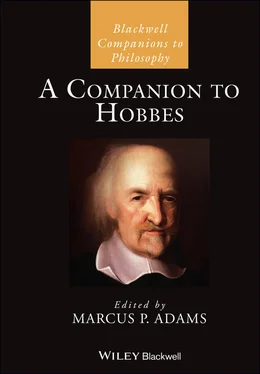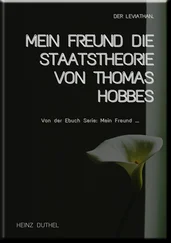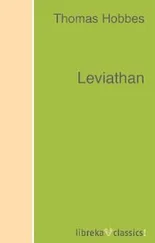Mónica Brito Vieira,Professor, University of York. Her work in political theory focuses on the languages and concepts through which we make sense of and shape our political world, most notably the concept of political representation. She is the author of The Elements of Representation in Hobbes (Brill, 2009), the coauthor of Representation (Polity, 2008), and editor of Reclaiming Representation (Routledge, 2017). Her work has also appeared in the American Political Science Review , Journal of the History of Ideas , History of Political Thought , Thesis Eleven , Constellations , Critical Review of International Social and Political Philosophy , and other journals.
Jacqueline Broad,Associate Professor of Philosophy, School of Philosophical, Historical, and International Studies at Monash University, Melbourne. Her main area of research is early modern women’s philosophy. She is the author of The Philosophy of Mary Astell: An Early Modern Theory of Virtue (Oxford University Press, 2015), A History of Women’s Political Thought in Europe, 1400–1700 (with Karen Green, Cambridge University Press, 2009), and Women Philosophers of the Seventeenth Century (Cambridge University Press, 2002). She is currently the Series Editor for Cambridge University Press’s new Elements series on Women in the History of Philosophy.
Michael Byron,Professor and Chair of Philosophy, Kent State University in Kent, Ohio, where he has held an appointment since 1997. He is the author of Submission and Subjection in Leviathan (Palgrave Macmillan, 2015), and the editor of Satisficing and Maximizing: Moral Theorists on Practical Reason (Cambridge University Press, 2004). He has published journal articles on ethical theory and theory of rationality. During 2004–5, he was Visiting Fulbright Scholar in Philosophy at Lingnan University in Hong Kong.
Alexandra Chadwick,postdoctoral researcher, University of Jyväskylä and a lecturer at Leiden University College. She is Associate Editor of the journal Hobbes Studies . Her chapter in this collection was written while she was a postdoctoral researcher at the University of Groningen. Her research has focused on Hobbes’s materialist psychology and its implications for his practical philosophy, and she is currently working on the psychology of sociability in the period between Hobbes and Hume. She received her doctorate in 2017 from Queen Mary, University of London, and from 2016-17 was a Max Weber Fellow at the European University Institute.
Jeffrey Collins,Associate Professor of History, Queen’s University, Ontario. A historian of Anglophone political and religious thought, he has authored many articles and chapters on the political, religious, and intellectual history of Britain during the era of the Civil Wars and Restoration. He has written two books: The Allegiance of Thomas Hobbes (Oxford, 2005), and In the Shadow of Leviathan: John Locke and the Politics of Conscience (Cambridge, 2020). He is currently an editor of the Journal of British Studies and is a regular book reviewer in the Wall Street Journal and the Times Literary Supplement .
Eleanor Curran,Senior Lecturer in Legal Philosophy, Kent Law School, University of Kent at Canterbury. Publications include Reclaiming the Rights of the Hobbesian Subject (Palgrave Macmillan, 2007), “Hobbesian Sovereignty and the Rights of Subjects: Absolutism Undermined?,” Hobbes Studies 32 (2019), “An Immodest Proposal: Hobbes Rather than Locke Provides a Forerunner for Modern Rights Theory,” Law and Philosophy (2012), “Hobbes on Equality: Context, Rhetoric, Argument” Hobbes Studies 25 (2012), and “Blinded by the Light of Hohfeld: Hobbes’s Notion of Liberty” Jurisprudence (2010).
Stewart Duncan,Associate Professor of Philosophy, University of Florida. He is the author of several articles on Hobbes, Leibniz, and other seventeenth-century philosophers, and is currently working on a book on the history of materialism from Hobbes to Locke.
Sandra Leonie Field,Assistant Professor of Humanities (Philosophy), Yale-NUS College, Singapore. She is the author of Potentia: Hobbes and Spinoza on Power and Popular Politics (Oxford University Press, 2020). Her research investigates conceptions of political power and their implications for democratic theory; she approaches these themes through engagement with texts in the history of philosophy. She has also written on non-Western political philosophy.
Luc Foisneau,Director of Research, French National Center for Scientific Research (CNRS). He also teaches political philosophy at the École des Hautes Études en Sciences Sociales in Paris. He is the author of Hobbes et la toute-puissance de Dieu (2000) and Hobbes: La vie inquiète (2016). He is the editor of Leviathan after 350 Years (2004, with T. Sorell), of New Critical Perspectives on Hobbes’s Leviathan (2004, with G. Wright), and Dictionnaire des philosophes français du 17e siècle: acteurs et réseaux du savoir (2015).
Geoffrey Gorham,Professor and Chair of Philosophy, Macalester College and Resident Fellow, Minnesota Center for Philosophy of Science. He is coeditor of The Language of Nature: Reassessing the Mathematization of Natural Philosophy (University of Minnesota, 2016), and author of Philosophy of Science (One World, 2009). Other recent publications include “Locke on Space, Time and God: The Van Limborch Correspondence” ( Ergo 2020); “American Immaterialism: Samuel Johnson’s Emendations of George Berkeley” ( Transactions of the Charles S. Peirce Society 2018); and “Descartes on the Infinity of Space vs. Time” (In Infinity in Early Modern Philosophy , Brill, 2018).
Karen Green,Professorial Fellow at the University of Melbourne. She is the author of A History of Women’s Political Thought in Europe, 1700–1800 (Cambridge University Press, 2014), A History of Women’s Political Thought in Europe, 1400–1700 , with Jacqueline Broad (Cambridge University Press 2009), she recently edited The Correspondence of Catharine Macaulay (Oxford University Press, 2019). Her most recent book is Catharine Macaulay’s Republican Enlightenment (Routledge, 2020).
Michael J. Green,Associate Professor of Philosophy, Pomona College. He has published articles on Hobbes’s theories of punishment, authorization, and justice in Pacific Philosophical Quarterly , the Journal of the History of Philosophy , and Oxford Studies in Early Modern Philosophy .
Helen Hattab,Professor of Philosophy, University of Houston, specializing in the history of Western philosophy and science from the late sixteenth to late seventeenth centuries. She is the author of Descartes on Forms and Mechanisms (Cambridge, 2009) and numerous papers tracing the connections between late Scholastic Aristotelian and seventeenth-century debates about causation, form, matter, substance, laws of nature, and scientific demonstration. Her current research focuses on arguments about the metaphysics of universals from late sixteenth-century philosophers to Spinoza, and the methods of analysis and synthesis from Zabarella and Burgersdijk to Hobbes and Spinoza.
John Henry,Professor Emeritus in History of Science, University of Edinburgh, Scotland. He has published widely in the history of science from the sixteenth to the nineteenth century and from atomism to paleontology. He has a particular interest in the major thinkers who contributed to the new mechanical philosophies of the seventeenth century, from Galileo and Descartes, through Hobbes and Robert Boyle, to Isaac Newton. A selection of his articles can be found in his Religion, Magic, and the Origins of Science in Early Modern England (Ashgate, 2012).
Читать дальше












